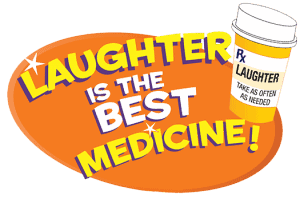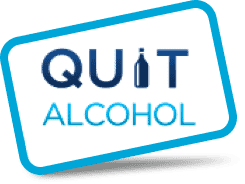
Laughter can also be an actual medicine.
A good chuckle could never replace professional treatments and/or therapies, but it could accompany and aid in the addiction recovery process. One of the most important aspects of laughter is that there are no risks or negative side effects. Some medications or treatments can leave you feeling worse while they make you better. Theoretically, laughter has the opposite effect. No one associates negative feelings with laughter.
Helping Cancer Patients
While only a few studies have been done, many cancer survivors advocate for laughter as a side treatment. They know it’s not a cure, but they advocate for it because it helps guide them away from negative feelings such as anger, depression, and solitude.
Scott Burton, a cancer survivor, said, “The other reactions; anger, depression, suppression, denial, took a little piece of me with them. Each made me feel just a little less human. Yet laughter made me more open to ideas, more inviting to others, and even a little stronger inside. It proved to me that, even as my body was devastated and my spirit challenged, I was still a vital human.”
The idea is that it puts them in a better atmosphere to face the challenges which lie ahead. Problems always seem less insurmountable if we have a little help. Mr. Burton makes it seem as though cheerfulness and laughter make us more open to accept the support of others. This same idea can be applied to someone recovering from an addiction. Although the struggle is different, laughter can be medicinal all the same.
Start exploring addiction rehabs
- Free & confidential helpline
- Connect with an expert rehab advisor
- Understand and review treatment options
Improving Attitude
A positive attitude goes a long way. This is another phrase we have heard multiple times. When it comes to battling addiction, addicts face a very rough road. Addiction is just as psychological as it is physical. A positive outlook can help recovering addicts fight through their obstacles. Laugher can help provide a positive outlook.
Recovering addicts always have the opportunity to ‘end their suffering’ by returning to the vices which they are battling. One huge reason recovering addicts are able to avoid relapse through perseverance is a positive attitude. Put simply, laughter makes light of a dark situation, and can improve your overall mental health.
Improving Physical Health
A study conducted by the University of Maryland (UM) showed how laughter has a few positive effects on physical health as well. The body is literally positively affected by laughter. While these effects may seem more important in patients and suffering from cancer or other fatal illnesses, we must remember that addiction itself is an illness. Many people tend to forget this fact. There is a stigmatism surrounding addiction – that it is a personal choice – and in society, addicts bear much of the blame for the situation that they are in. A lot of the time they do want to take responsibility and quit, but their bodies do not give them a choice.
One physical benefit of laughter is the effect that it has on blood vessel function. The inner lining of blood vessels is called the endothelium. The expanding or dilating of this layer can increase blood flow throughout the body. Increased blood flow can be beneficial in many ways. The first of which is to help prevent cardiovascular disease by decreasing the hardening of arteries. Secondly, the endothelium can help heal wounds, infections, and irritation by secreting chemicals and other substances. When overcoming addiction, many of these effects can aid the recovery process.
The UM study supports this direct correlation between laughter and blood vessel function. The study included a group of 20 healthy individuals who were asked to watch 15 minute segments of a stressful movie and a comedy. Out of the 20 volunteers, 19 experienced beneficial blood vessel relaxation or increased vasodilation during the comedic movies. They experience a 22% increase in blood flow. In contrast, a 35% decrease in blood flow was observed in those watching the stressful movie.
Another study by Mary Bennett, director of Western Kentucky University School of Nursing, showed a correlation between mirthful laughter and increased natural killer cell activity. This aids in the ability to fight off diseases. While this again would perhaps be more useful in terminal patients, any increase in immunity can help those suffering from any illness. More research needs to be conducted to prove anything further, however, according to Bennett.
How to Laugh as a Recovering Addict
Now the question is where to go as a recovering addict to feel comfortable enough to let loose and have a good laugh. Mark Lundholm and Kurtis Matthews are two recovering addicts who started a stand-up comedy tour called the “Addicts Comedy Tour.” This is a safe place for all, not only addicts, to come and have a satisfying laugh. Mark and Kurtis understand better than most the importance of support and a positive attitude when attempting what seems like the impossible. The stories and jokes they tell receive an empathetic response from those going through the same trials.
Mark and Kurtis are doing wonderful work, and they started it as a support tactic for themselves. There are a lot of professional comedians who have used humor as a support tactic during their rehabilitation process as well. Among them are Craig Ferguson and legend Richard Pryor, the latter of whom became an AA advocate.
We’ve Helped Thousands of Individuals Overcome Drug and Alcohol Addiction
In Conclusion, Laugh a Lot!
So what is the point of laughing then? The answer is why not. Whether or not you agree that laughter has a major impact on recovery, the point is it that it can’t hurt. Science has proven laughter to help the body, and all humans know how laughter helps the mind.
Addiction can be a lifelong battle. For most, it gets easier over time, but only if you can maintain a positive outlook on life. So if you know someone struggling with addiction recovery, do what you can to give them a little chuckle. It may just go a long way.

